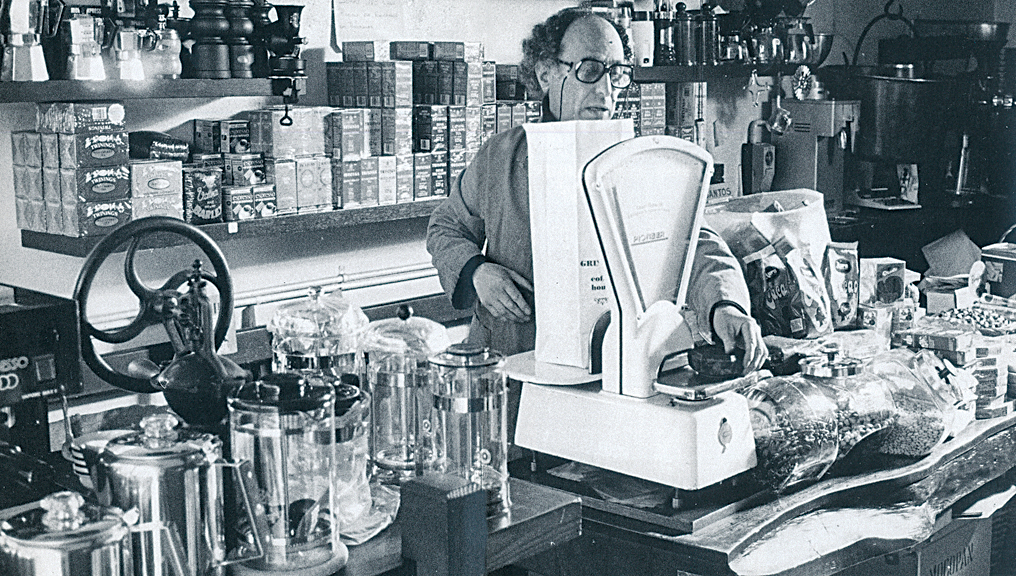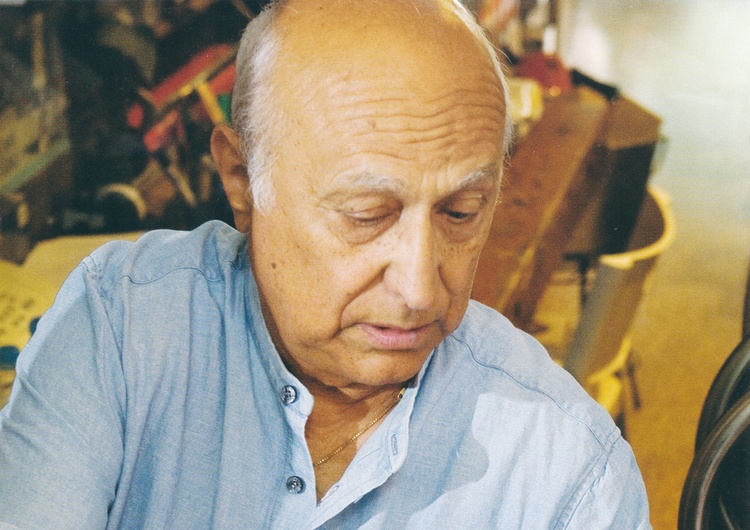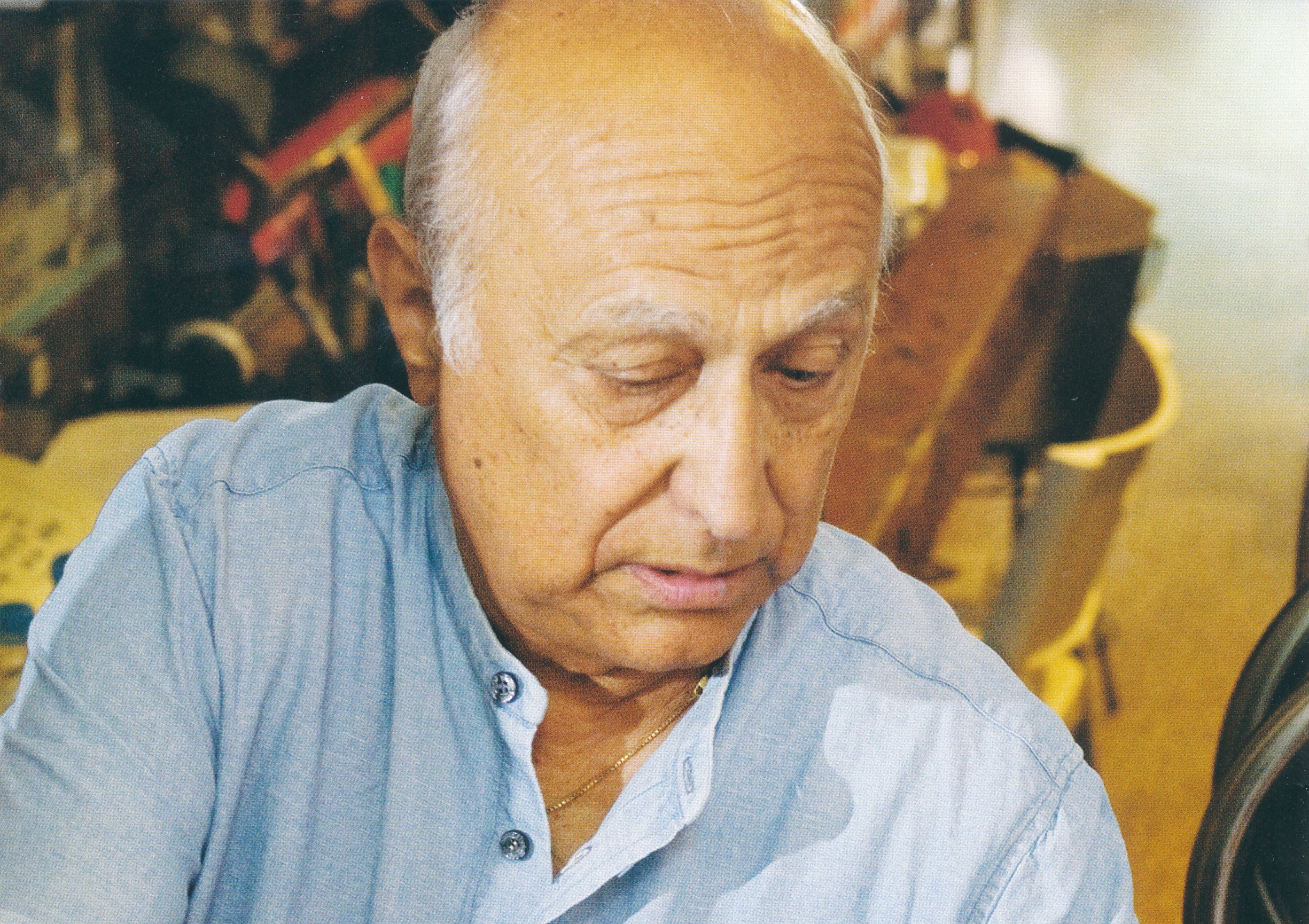That’s all there is to it.
While he’s a little less reticent when talking about brews, even they have a simple recipe too.
“When I’d buy a batch of coffee, I’d try it on my own first,” he says.
“I’d roast it a bit and taste it.
“If it was too bitter, I’d add a sweeter variety, then try it again.
“I’d keep doing this until I was happy.”
No mystery. No magic.
Coffee is good when it tastes good; if it’s too bitter, change the blend.
In a city like Melbourne, where coffee’s not merely drunk but savoured – and may often be bitterly disappointing – Giusti’s wise words are comforting.
Like many Italians, Giusti believes coffee should not be savoured but downed while standing at the counter and lost in thought.
Instead of discussing coffee, he prefers talk about opera and the artists he’s met over the years thanks to his coffee: Giuseppe Di Stefano, Carlo Bergonzi, Renata Scotto, Katia Ricciarelli and The Three Tenors, to name a few.
Giusti’s Australian adventure began in 1960.
Hailing from Albaredo d’Adige, a small town near Verona, Giusti was 21 and working as a petroleum sales representative when he migrated to Australia.
“Italy was recovering from the war and there was construction going on everywhere,” he says.
“People weren’t doing badly, especially in my area.”
But a young Giusti was restless and wanted a change.
With a ticket paid for by the Australian government, he headed to Melbourne.
“After 30 days at sea, the ship docked in the port,” he recounts.
“It was the day before Easter of 1960.
“I was the last passenger to disembark.”
Australia was going through a difficult time: there was a recession and it was hard get a job.
“I didn’t speak English and I could only apply for jobs where knowledge of the language wasn’t required,” Giusti says.
“In the end I got a job at General Motors, where I worked in an assembly line making distributors.”
But the economic situation was dire and General Motors began reducing staff numbers.
After six months in the assembly line, Giusti was fired.
He then moved to the countryside, where he worked for a company that specialised in canned fruit.
But Giusti soon became restless again.
So he took what he’d learned as youngster working in his father’s store, and began selling food products to Italian restaurants.
Then, one day, he was introduced to the world of coffee.
“I found out about the coffee company Mocopan and went to work for them as a sales rep,” he says.
“I visited venues and asked if they needed coffee.
“It was easy because there was no competition; I managed to build up a nice network of clients.”
Still Giusti wasn’t satisfied.
He wanted to give it a shot on his own.
But there was just one problem: money.
If he wanted to start his own business, he’d have to take out a loan.
“I knew an Australian family and I took their daughters dancing on the Italian ships that arrived at Port Melbourne,” Giusti says.
“One evening I said: ‘Girls, why don’t you ask your parents if I can borrow £1000 so I can start a business with my friend.’
“That was a lot of money at the time, but the family had faith in me and the father gave me the loan.”
It was 1962 when Giusti opened a cafe in Lygon Street with Rino Benassi.
That’s how Grinders Coffee came to life.
“Life was good but nothing special, so much so that at one point I began to miss home,” Giusti says.
“I paid off the loan and returned to Italy.”
But he wasn’t gone for long.
Upon his return to Melbourne, Giusti bought a roaster and opened a cafe with coffee roasting facilities.

Finally, he was his own boss.
Business was going well and within the first week, Giusti had sold up to 300 kilograms of coffee.
It was the perfect moment to invest and Giusti bought a bigger roaster.
He was then producing two tonnes of coffee a week.
Giusti rented a small place and invested in machinery.
Production increased again to six tonnes a week.
But it didn’t stop there: he then rented a bigger space and bought new machinery.
Soon he had over 60 employees and was producing almost 20 tonnes of coffee a week.
If it ended here, Giusti’s story would be similar to many others’.
It was what happened next that made all the difference.
“I was in Italy, where I return every year for the summer holidays,” he says.
“One day I got a phone call from my accountant.
“He said that Coca-Cola wanted to buy the business.
“At first I thought one of my friends was playing a prank on me.
“So I said: ‘OK. Tell them to come back with the money and then we’ll talk.’
“And so they did... It was an offer I couldn’t have ever imagined, and one I couldn’t refuse.
“They took be by surprise... I tried to hide my excitement by asking for a higher offer.
“They said that was their final offer and I accepted, more than willingly.”
And, as they say, the rest is history.
On September 8, 2005, Giusti handed over Grinders Coffee to Coca-Cola Amatil.
At last, Giusti was satisfied... And he remains so to this day.
“In 1960, when I left Albaredo to come here, I didn’t speak a word of English and had no idea what to expect,” he says.
“I was lucky: I liked Australia straight away and integrated easily.
“I think I also knew how to adapt... I didn’t try to impose my ways on others and I tried to fit in with the locals.
“Perhaps that’s why I’m more known to Australians than Italians.
“It was a wonderful experience and I’d do it all again.”
Giusti’s been selling coffee for a lifetime.
But when asked about it, he’s a man of few words.
Regardless, I can’t help but ask the question all Italians have at some point.
“Giancarlo,” I say.
“In your opinion... Is Melbourne’s coffee good?”
Giusti looks at me without batting an eyelid.
The suspense builds.
Then he smiles and changes the subject.












